
Strategies to Elevate Your Business through Marketing

Source: b1819493.smushcdn.com
Introduction to Elevating Your Business through Marketing
In today's competitive business landscape, effective marketing is essential for the success and growth of any business. Elevating your business through strategic marketing initiatives can help you reach and engage with your target audience, increase brand awareness, and drive sales. Let's dive deeper into the world of marketing and explore how you can leverage various strategies to take your business to new heights.
Understanding Your Target Audience
Market Research and Analysis
Before implementing any marketing strategy, it is crucial to conduct thorough market research and analysis to understand your target audience's needs, preferences, and behaviors. This data-driven approach allows you to tailor your marketing efforts to resonate with your audience effectively.
Consumer Behavior Studies
Studying consumer behavior patterns can provide valuable insights into how your target audience makes purchasing decisions. By analyzing factors such as buying motivations, preferences, and shopping habits, you can refine your marketing strategies to better appeal to your customers.
Developing a Strong Brand Identity
Branding Strategies
Building a strong brand identity is key to standing out in a crowded marketplace. Your branding strategies should reflect your company's values, mission, and unique selling proposition to create a lasting impression on your target audience.
Creating a Unique Selling Proposition (USP)
Identifying and highlighting your unique selling proposition sets you apart from competitors and gives customers a compelling reason to choose your products or services. Your USP should clearly articulate what makes your business different and why customers should choose you.
Implementing Effective Digital Marketing Campaigns
Social Media Marketing
Social media platforms offer a powerful way to connect with your target audience and drive engagement. By creating a strong social media presence and sharing relevant content, you can boost brand visibility and foster meaningful relationships with your customers.
Search Engine Optimization (SEO)
Optimizing your website for search engines is crucial for increasing your online visibility and driving organic traffic. By incorporating SEO best practices such as keyword optimization, high-quality content creation, and link building, you can improve your search engine rankings and attract more visitors to your site.

Source: www.gosurvey.in
Understanding Your Target Audience
In the realm of marketing, understanding your target audience is like having a compass that guides your every move. Let's explore the intricate process of unraveling the wants and needs of your customers to tailor your marketing strategies effectively.
Market Research and Analysis
Market research and analysis serve as the foundation upon which successful marketing campaigns are built. Here's why it's crucial to delve deep into your target audience:
Identifying Market Trends: By analyzing market trends, you can stay ahead of the curve and anticipate changes in consumer behavior.
Competitor Analysis: Understanding your competitors' strategies can help you differentiate your brand and capitalize on market gaps.
Segmentation: Segmenting your audience based on demographics, psychographics, and behaviors allows for more personalized targeting.
Feedback Collection: Gathering feedback through surveys, focus groups, or social media can provide valuable insights into customer preferences.
Consumer Behavior Studies
The study of consumer behavior is like peering into the psyche of your target audience to uncover what makes them tick. Here's why delving into consumer behavior is essential:
Purchasing Motivations: Understanding why customers make buying decisions can help you frame your marketing messages effectively.
User Experience: Analyzing how customers interact with your products or services can lead to improvements in customer experience.
Behavioral Patterns: Identifying recurring patterns in consumer behavior can inform your marketing strategies and product development.
Brand Loyalty: Studying customer loyalty can help you retain existing customers and build long-term relationships.
By combining market research with consumer behavior studies, you can paint a comprehensive picture of your target audience, allowing you to craft marketing campaigns that truly resonate with your customers. Remember, the key to successful marketing lies in understanding and connecting with your audience on a deeper level.
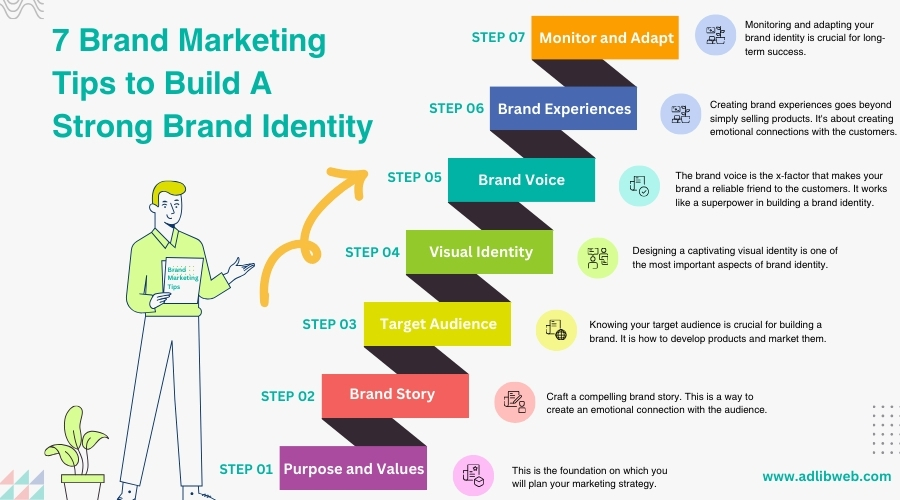
Source: www.adlibweb.com
Developing a Strong Brand Identity
Crafting a strong brand identity is akin to sculpting a masterpiece that reflects the essence of your business. Let's delve into the art of branding and uncover how it can set your business apart in a crowded marketplace.
Branding Strategies
Branding strategies are the roadmap that navigates your brand towards success and recognition. Here are some key strategies to consider:
Consistent Visual Identity: Maintaining consistency in your logo, colors, fonts, and imagery across all touchpoints reinforces brand recall.
Storytelling: Sharing your brand's story creates an emotional connection with your audience, fostering brand loyalty.
Brand Voice: Developing a distinct brand voice helps communicate your brand's personality and values effectively.
Customer Experience: Ensuring a positive and memorable customer experience at every interaction point reinforces your brand's image.
Creating a Unique Selling Proposition (USP)
Your Unique Selling Proposition (USP) is the secret sauce that sets your brand apart from the competition. Here's how to craft a compelling USP:
Identify What Sets You Apart: Determine what makes your products or services unique and valuable to your target audience.
Address Customer Needs: Highlight how your offerings solve a specific problem or fulfill a need that resonates with your customers.
Communicate Clearly: Clearly articulate your USP in your marketing collateral to grab your audience's attention.
By honing your branding strategies and defining a strong USP, you can carve out a distinct identity in the minds of your customers. Remember, a compelling brand identity not only attracts customers but also fosters brand loyalty and advocacy. So, invest time and effort in crafting a brand that resonates with your target audience and leaves a lasting impression in the competitive marketplace.
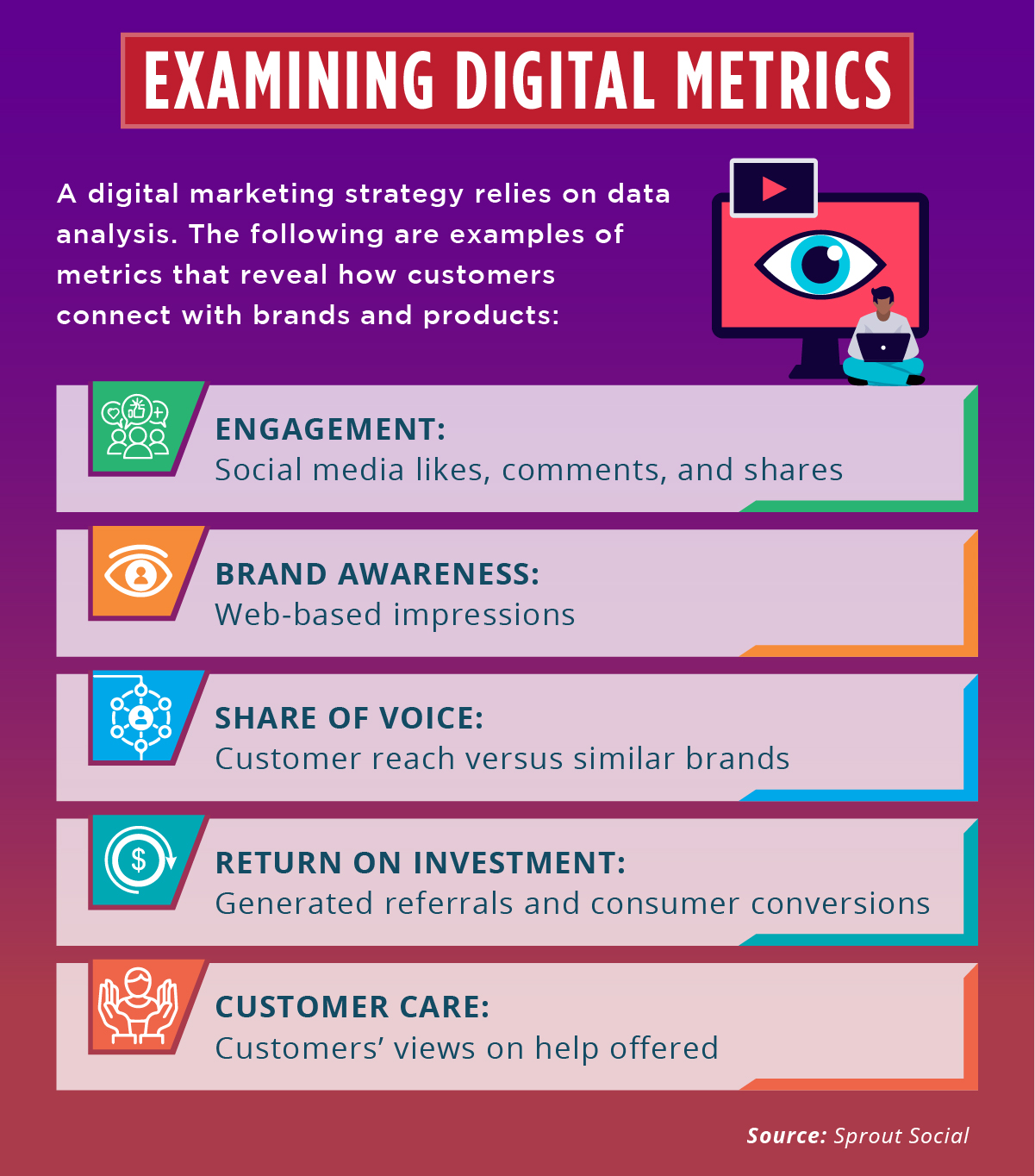
Source: online.maryville.edu
Implementing Effective Digital Marketing Campaigns
As we continue our journey into elevating your business through marketing, the realm of digital marketing emerges as a powerful tool to connect with your audience in the digital age. Let's explore two vital pillars of digital marketing that can propel your business forward.
Social Media Marketing
Social media has revolutionized the way businesses interact with their target audience. Leveraging social media platforms effectively can amplify your brand's reach and engagement. Here are some tips for successful social media marketing:
Platform Selection: Identify the social media platforms where your target audience is most active to focus your efforts effectively.
Engaging Content: Create compelling and relevant content that resonates with your audience and encourages interaction.
Consistent Posting: Maintain a regular posting schedule to keep your audience engaged and build brand visibility.
Customer Engagement: Respond to comments and messages promptly to foster relationships and show that you value your customers.
Search Engine Optimization (SEO)
Search Engine Optimization (SEO) plays a critical role in improving your website's visibility and attracting organic traffic. Here's how you can optimize your website for search engines:
Keyword Research: Identify relevant keywords that your audience is searching for and integrate them into your website content.
Quality Content: Create high-quality, valuable content that answers users' queries and provides solutions to their problems.
On-Page Optimization: Optimize meta tags, headings, and images to make your content more search engine-friendly.
Link Building: Build backlinks from reputable websites to increase your site's authority and credibility.
By harnessing the power of social media marketing and SEO, you can expand your digital footprint, drive traffic to your website, and ultimately boost your business's online presence. Remember, digital marketing is a dynamic and ever-evolving field, so stay informed about the latest trends and strategies to stay ahead of the competition.
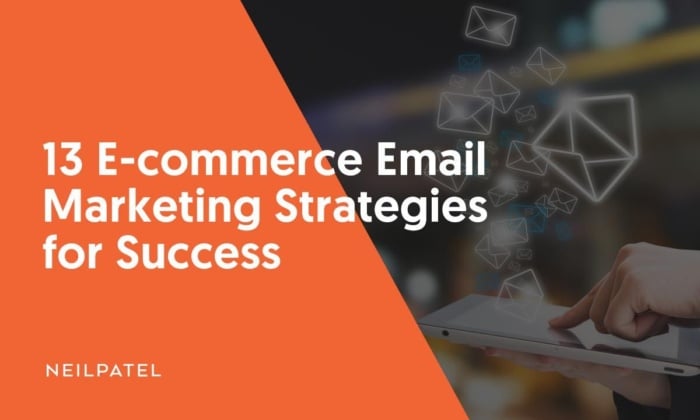
Source: neilpatel.com
Leveraging Email Marketing for Business Growth
As our marketing journey unfolds, the power of email marketing emerges as a potent tool for nurturing customer relationships and driving business growth. Let's explore how you can harness the potential of email marketing to engage with your audience and propel your business forward.
Building an Email Subscriber List
Building a robust email subscriber list is the cornerstone of a successful email marketing strategy. Here are some strategies to grow your subscriber list:
Website Opt-In Forms: Place opt-in forms on your website to capture visitors' email addresses.
Incentivize Sign-Ups: Offer incentives such as discounts, free resources, or exclusive content in exchange for email subscriptions.
Social Media Promotion: Promote your email newsletter on social media platforms to attract followers.
Attend Events: Collect email addresses at events or trade shows by offering attendees the opportunity to sign up for your newsletter.
Remember, the key to a successful email subscriber list is quality over quantity. Focus on attracting engaged subscribers who are genuinely interested in your brand and offerings.
Crafting Engaging Email Content
Crafting engaging and relevant email content is essential to keep your subscribers interested and drive conversions. Here are some tips for creating compelling email content:
Personalization: Personalize your emails with the recipient's name and tailor content based on their preferences and behavior.
Compelling Subject Lines: Use attention-grabbing subject lines to entice subscribers to open your emails.
Clear Call-to-Actions (CTAs): Include clear and compelling CTAs that prompt subscribers to take action, whether it's making a purchase, visiting your website, or engaging with your content.
Visual Appeal: Incorporate visuals such as images, videos, and infographics to make your emails visually appealing and engaging.
By building a quality email subscriber list and crafting engaging email content, you can leverage email marketing as a powerful tool for engaging with your audience, nurturing leads, and driving conversions. Remember, consistency and relevance are key to maintaining a strong email marketing strategy that resonates with your subscribers and contributes to your business growth.
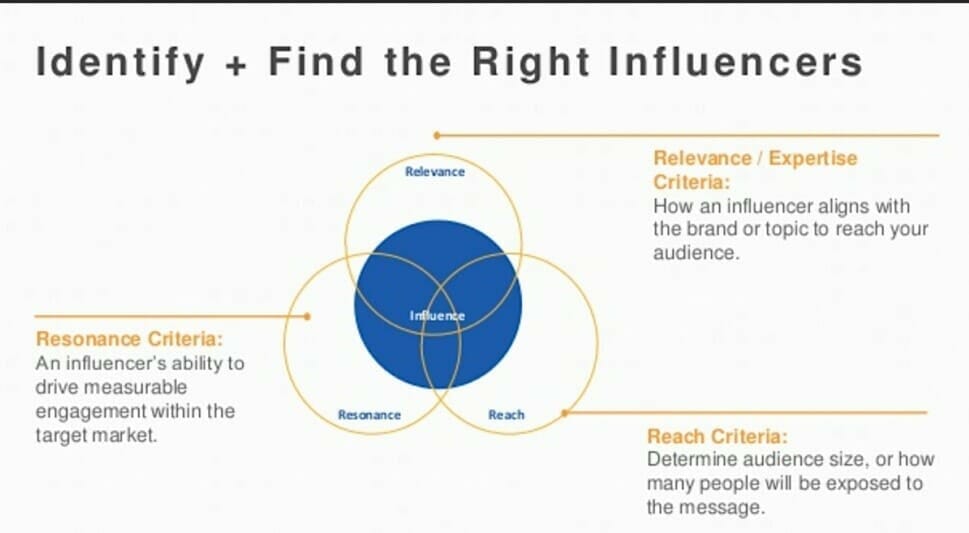
Source: www.singlegrain.com
Utilizing Influencer Marketing to Reach a Wider Audience
In the dynamic landscape of modern marketing, influencer marketing has emerged as a powerful strategy to tap into the trust and reach of social media influencers. Let's delve into how you can leverage influencer partnerships to expand your brand's visibility and connect with a broader audience.
Identifying and Partnering with Influencers
Identifying the right influencers and fostering authentic partnerships is essential for a successful influencer marketing campaign. Here are some steps to identify and collaborate with influencers:
Define Your Goals: Clarify your marketing objectives and identify the type of influencers who align with your brand values and target audience.
Research Influencers: Conduct thorough research to identify influencers who have a genuine and engaged following that matches your target demographic.
Engage Authentically: Reach out to influencers with personalized messages that highlight why you admire their content and how your partnership can benefit both parties.
Negotiate Terms: Clearly define expectations, deliverables, and compensation in a mutually beneficial agreement to ensure a successful collaboration.
Remember, authentic partnerships with influencers who genuinely resonate with your brand can yield valuable results and help you reach new audiences effectively.
Measuring the Impact of Influencer Collaborations
Measuring the impact of influencer collaborations is crucial to evaluate the success of your campaigns and optimize future strategies. Here are some key metrics to consider when measuring the impact of influencer marketing:
Engagement Rates: Monitor likes, comments, and shares on influencer posts to gauge audience interaction and interest.
Follower Growth: Track changes in your own social media following during and after the influencer partnership to assess brand awareness and audience expansion.
Website Traffic: Use tracking links or UTM parameters to analyze the traffic driven to your website from the influencer's content.
Sales and Conversions: Measure the direct impact on sales and conversions resulting from the influencer collaboration to determine ROI.
By measuring the impact of influencer collaborations and analyzing key performance indicators, you can fine-tune your influencer marketing strategy, optimize future partnerships, and maximize the reach and impact of your brand message. Remember, building genuine relationships with influencers and focusing on mutual value creation is key to long-term success in influencer marketing.
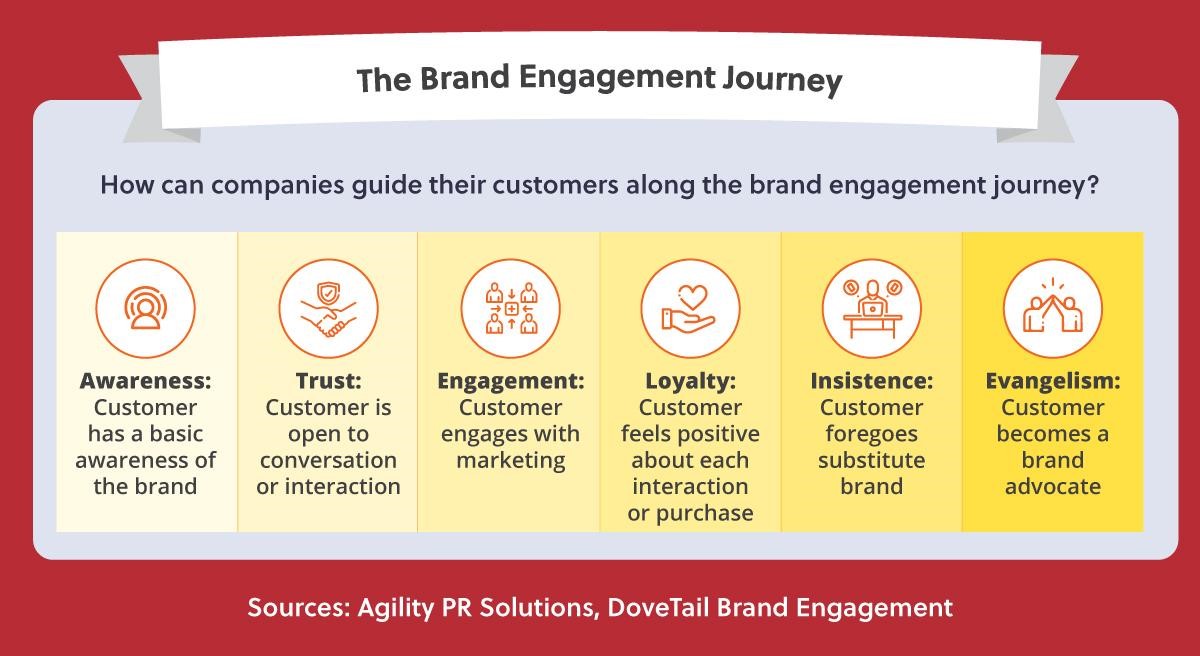
Source: online.maryville.edu
Enhancing Customer Engagement through Content Marketing
As we explore avenues to elevate your business through marketing, the role of content marketing in enhancing customer engagement stands out as a pivotal strategy. Let's delve into how strategically crafted content can captivate your audience and foster meaningful connections with your brand.
Content Creation Strategies
Content creation lies at the heart of any successful content marketing strategy. Here are some strategies to create compelling and engaging content for your audience:
Understand Your Audience: Conduct thorough research to understand your target audience's preferences, interests, and pain points.
Develop a Content Calendar: Plan and schedule your content to ensure consistency and maintain a steady flow of valuable information.
Utilize SEO Best Practices: Incorporate relevant keywords, meta tags, and high-quality content to improve search engine visibility.
Tell Stories: Engage your audience by weaving narratives and storytelling into your content to create a deeper connection.
Experiment with Different Formats: Explore various content formats such as videos, blogs, infographics, podcasts, and interactive quizzes to cater to diverse preferences.
Utilizing Different Content Formats (Videos, Blogs, Infographics)
Diversifying your content formats can help you effectively communicate with your audience and cater to different learning styles and engagement preferences. Here are some popular content formats to consider:
Videos: Engage your audience visually through product tutorials, behind-the-scenes videos, vlogs, or customer testimonials.
Blogs: Share informative and educational content through blog posts that address common questions, provide industry insights, or showcase thought leadership.
Infographics: Present complex information in a visually appealing and digestible format to capture attention and facilitate easy understanding.
Interactive Content: Create interactive quizzes, polls, or calculators to encourage user participation and engagement.
By incorporating diverse content formats into your content marketing strategy, you can keep your audience engaged, drive traffic to your website, and foster meaningful relationships with your customers. Remember, the key to successful content marketing is to deliver value, relevance, and authenticity to your audience consistently.
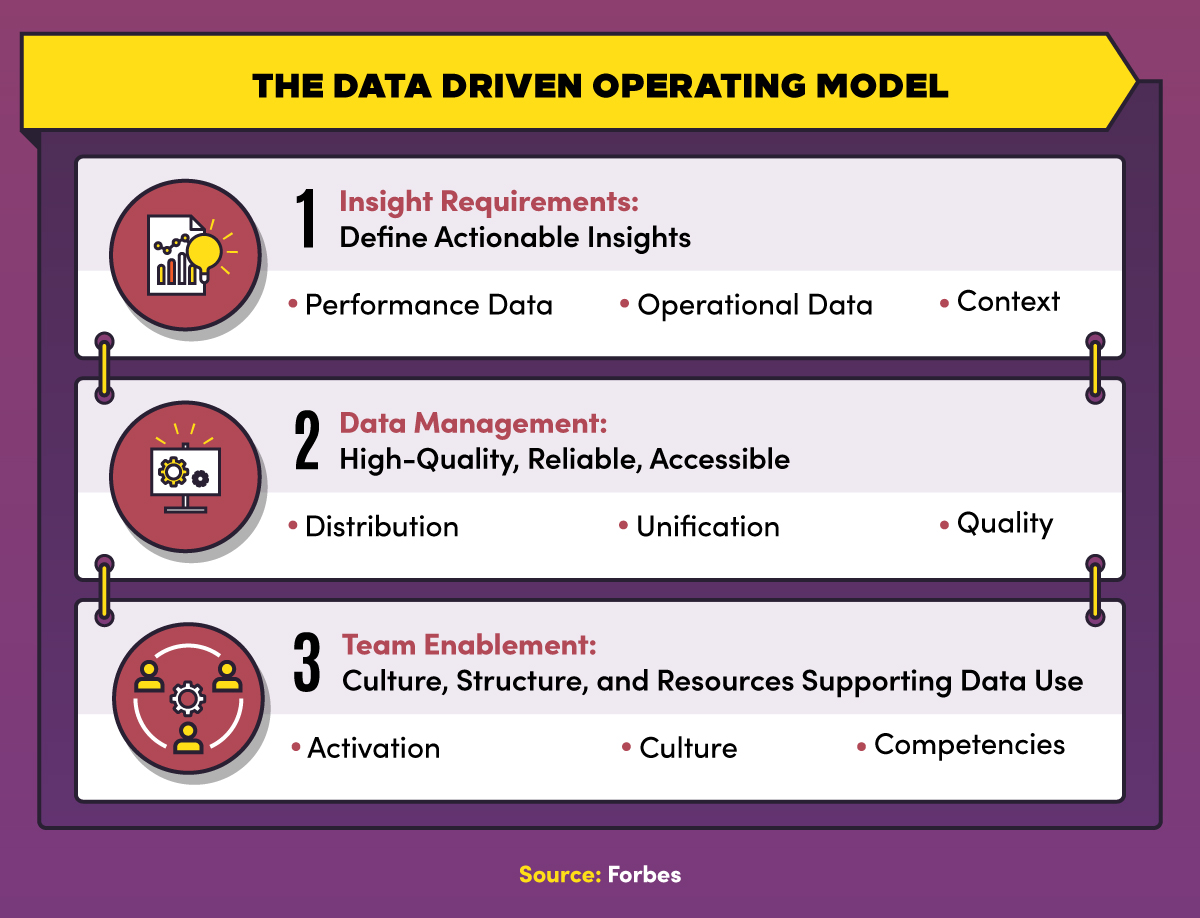
Source: online.maryville.edu
Incorporating Data Analytics for Informed Marketing Decisions
In the digital age, data analytics has become a cornerstone of informed marketing strategies. By harnessing the power of data, businesses can gain valuable insights into consumer behavior, campaign performance, and market trends. Let's explore how data analytics can drive your marketing decisions to new heights of effectiveness.
Tracking Key Performance Indicators (KPIs)
Tracking Key Performance Indicators (KPIs) is essential for evaluating the success of your marketing initiatives and making data-driven decisions. Here are some key KPIs to track:
Website Traffic: Monitor the number of visitors to your website, pages visited, and user engagement metrics.
Conversion Rate: Track the percentage of visitors who complete a desired action, such as making a purchase or signing up for a newsletter.
Customer Acquisition Cost (CAC): Calculate how much it costs to acquire a new customer through your marketing efforts.
Return on Investment (ROI): Measure the return on investment from your marketing campaigns to assess their profitability.
Email Engagement: Monitor open rates, click-through rates, and conversion rates for your email marketing campaigns.
Tracking KPIs allows you to measure the performance of your marketing efforts, identify areas for improvement, and optimize your strategies for better results.
Analyzing and Interpreting Marketing Data
Analyzing and interpreting marketing data is where the true power of data analytics shines. Here are some steps to effectively analyze and interpret marketing data:
Data Collection: Collect data from various sources such as website analytics, social media insights, and customer surveys.
Data Visualization: Use data visualization tools to create visual representations of your data, such as charts, graphs, and dashboards.
Identify Trends: Look for patterns and trends in your data to uncover insights into consumer behavior and market dynamics.
Performance Comparison: Compare the performance of different marketing channels, campaigns, or strategies to identify what works best for your business.
Data-Driven Decision Making: Use data insights to make informed decisions about your marketing strategies, budget allocation, and audience targeting.
By analyzing and interpreting marketing data, businesses can make informed decisions, optimize their marketing tactics, and drive improved results. Remember, data is a powerful asset that can guide your marketing efforts towards greater effectiveness and success.

Source: cdn.prod.website-files.com
Optimizing Customer Experience for Better Retention and Loyalty
In the competitive landscape of today's business world, optimizing customer experience is paramount for fostering loyalty, increasing retention, and driving growth. By focusing on personalized customer journeys and implementing robust feedback mechanisms, businesses can create memorable experiences that keep customers coming back for more. Let's explore how to elevate customer experience to cultivate long-lasting relationships.
Creating Personalized Customer Journeys
Personalization is the key to creating meaningful and memorable customer experiences. Tailoring interactions based on individual preferences, behaviors, and needs can enhance engagement and build loyalty. Here are some strategies for creating personalized customer journeys:
Know Your Customers: Gather data on customer preferences, purchase history, and interactions to understand their needs and preferences.
Segmentation: Divide your customer base into segments based on demographics, behavior, or preferences to deliver targeted and relevant experiences.
Personalized Communication: Use personalized communication channels such as personalized emails, product recommendations, and tailored promotions.
Customized Touchpoints: Personalize touchpoints across the customer journey, from initial contact to post-purchase follow-ups, to create a seamless and personalized experience.
By creating personalized customer journeys, businesses can deepen customer relationships, increase engagement, and drive loyalty by showing customers that they are valued and understood.
Implementing Feedback Mechanisms for Continuous Improvement
Feedback is a valuable tool for understanding customer perceptions, addressing pain points, and driving continuous improvement. Implementing effective feedback mechanisms allows businesses to gather insights, make data-driven decisions, and enhance the overall customer experience. Here are some ways to implement feedback mechanisms:
Surveys and Questionnaires: Collect feedback through surveys, questionnaires, and feedback forms to gather insights on customer satisfaction and areas for improvement.
Social Listening: Monitor social media channels and online reviews to understand customer sentiment and address issues in real-time.
Customer Service Feedback: Encourage customers to provide feedback after interactions with customer service representatives to improve service quality.
Net Promoter Score (NPS): Measure customer loyalty and likelihood to recommend by using NPS surveys to gauge overall satisfaction.
By actively seeking and acting upon customer feedback, businesses can demonstrate their commitment to customer satisfaction, drive improvements, and create a customer-centric culture that fosters loyalty and retention. Remember, customer experience is a continuous journey of refinement and adaptation to meet evolving customer needs and expectations.
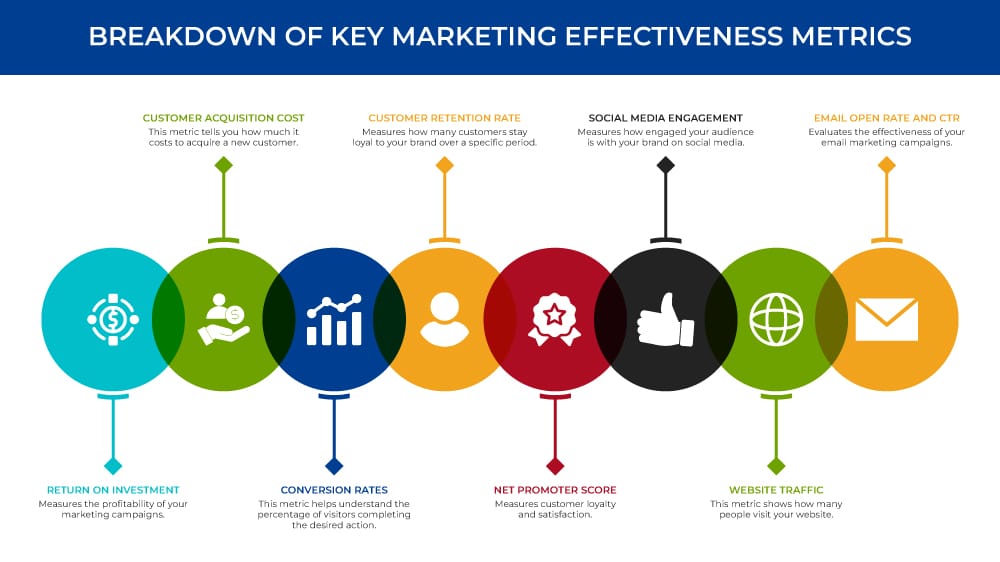
Source: blueatlas-13bc3.kxcdn.com
Measuring the Success of Your Marketing Strategies
As you navigate the intricate landscape of marketing, measuring the success of your strategies is crucial to understanding what's working, what needs improvement, and how to drive better results. By setting and evaluating marketing goals and conducting regular audits, businesses can gain valuable insights that inform future strategies and optimize performance. Let's delve into the art of measuring marketing success.
Setting and Evaluating Marketing Goals
Setting clear and measurable marketing goals is the first step towards gauging the effectiveness of your strategies. Here's how to set and evaluate marketing goals successfully:
SMART Goals: Define Specific, Measurable, Achievable, Relevant, and Time-bound (SMART) goals that align with your overall business objectives.
KPIs: Identify Key Performance Indicators (KPIs) that will help you track progress towards your goals, such as website traffic, conversion rates, or social media engagement.
Regular Evaluation: Monitor and evaluate the performance of your marketing campaigns against predetermined goals to assess success and make necessary adjustments.
Adjust Strategies: Analyze the data gathered from goal evaluation to refine strategies, reallocate resources, and optimize future campaigns for better results.
By setting and evaluating marketing goals, businesses can track progress, measure success, and pivot strategies to achieve desired outcomes effectively.
Conducting Regular Marketing Audits
Conducting regular marketing audits is essential for gaining insight into the overall performance of your marketing efforts and identifying areas for improvement. Here's how to conduct effective marketing audits:
Review Campaign Performance: Evaluate the success of past marketing campaigns by analyzing metrics, such as ROI, conversion rates, and engagement levels.
Audience Analysis: Conduct in-depth analysis of your target audience, their behaviors, preferences, and demographics to ensure alignment with marketing strategies.
Competitor Analysis: Assess the strategies and tactics employed by competitors to identify opportunities for differentiation and competitive advantage.
Technology Assessment: Review the tools and technologies used in your marketing stack to ensure they are optimized for efficiency and effectiveness.
By conducting regular marketing audits, businesses can gain a comprehensive understanding of their marketing efforts, identify areas for growth, and make data-driven decisions that lead to improved performance and results. Remember, the key to successful marketing lies in continuous evaluation, adaptation, and optimization based on insights gathered through goal setting, evaluation, and audits.
